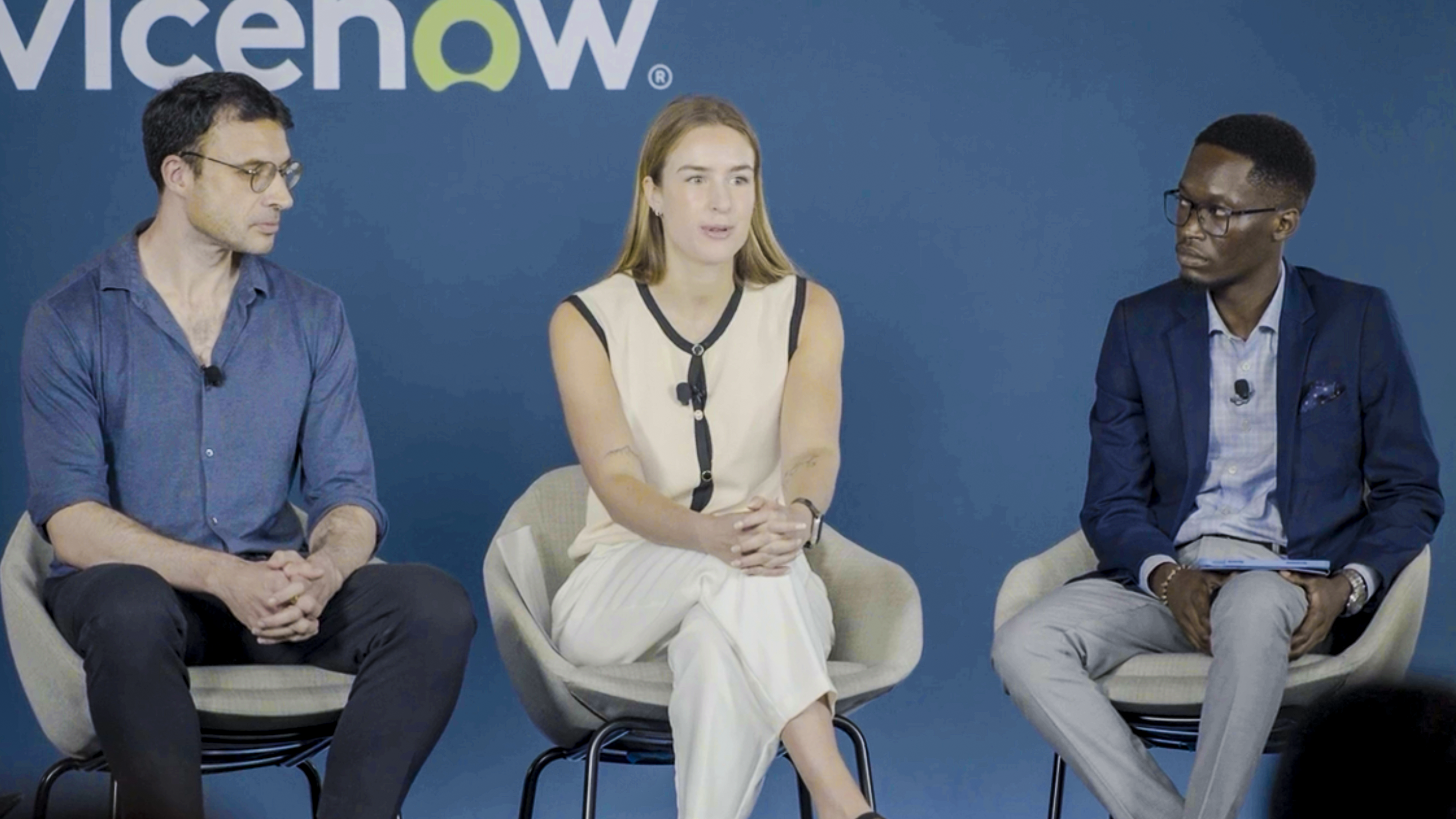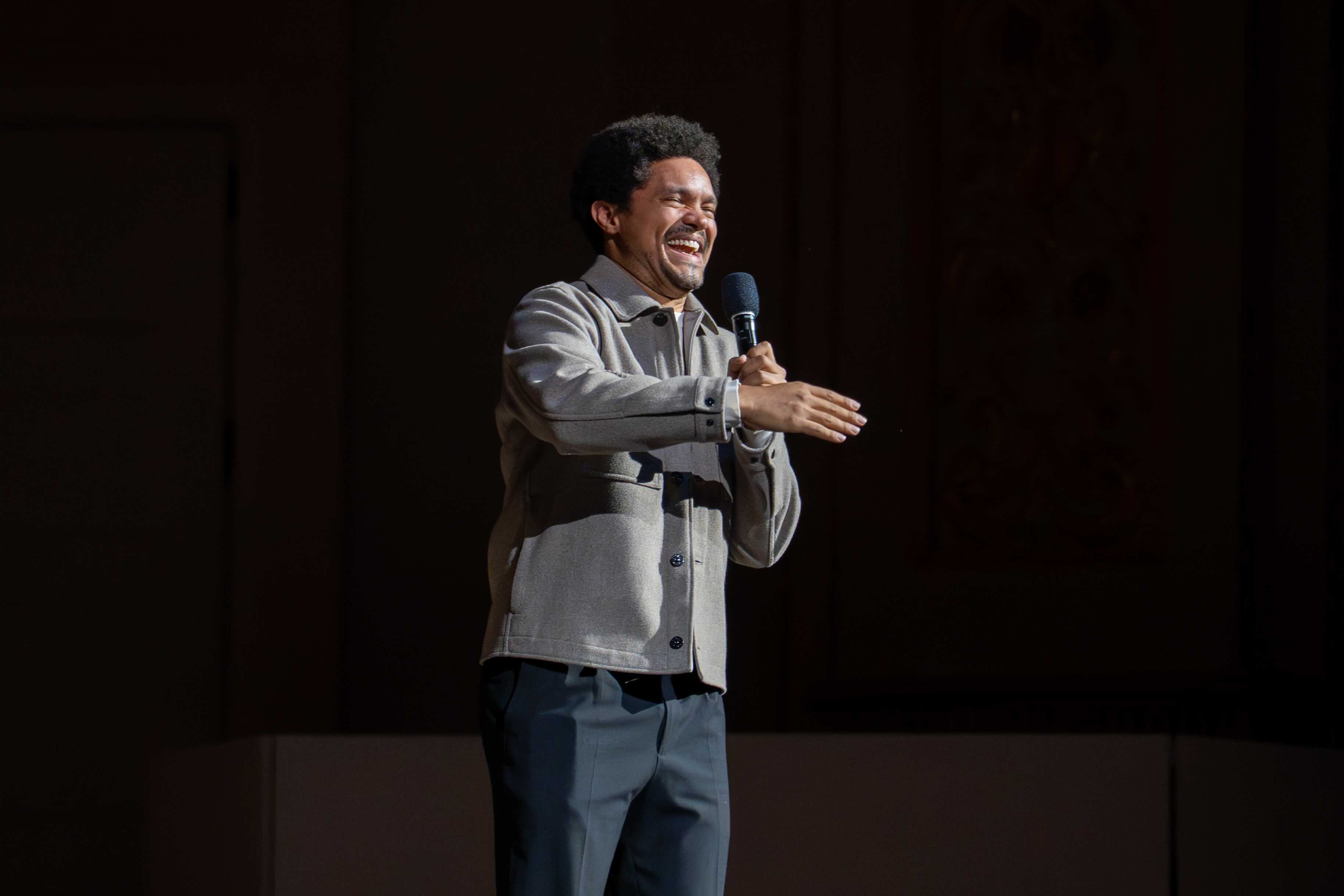Generation AI: How youth can shape tech’s future

Over the past few months, Comic Relief’s Youth Advisory Council (YAC) has been working on something pretty special: a study about how young people view AI. YAC leads Bahía Gatti & Lubumbe Jeremiah Muland share what they learned and why young people leading conversations about the technology that will shape their future matters now more than ever.
Why a study about AI?
One of the goals for Comic Relief's Youth Advisory Council (YAC), our youth leadership initiative, is to ensure that youth can be shapers of the future they want to see, especially young people from communities facing poverty. That's why, when corporate partner ServiceNow was interested in collaborating on a study exploring young people's views on AI, we jumped at the chance. Youth, particularly those from marginalized communities, are often left out of decision-making in technology, yet they often bear the brunt of any harm or exclusion. To ensure technology like AI evolves in a way that's fair, human, and equitable for everyone, their perspectives must be heard.
How we did it?
The Generation AI research was informed by a survey that went to over 1000 young people across the world, in addition to one-on-one conversations with a smaller group, about their interactions with AI. The Comic Relief Youth Advisory Council (YAC) played a critical role in recruiting participants from their networks to ensure diversity in the research, with young people drawn from North and South America, Africa, Europe & Asia.
The result.
The final report asks a simple question: How does Gen Z really feel about AI?
The answers hit home for us:
- Hopeful but careful. More than 60% of participants said they think AI will help society.
- Creativity first. Our biggest worry isn’t robots taking jobs, it’s losing the spark of human creativity and connection.
- Different vibes worldwide. Daily AI use among people who have access is nearly 80% in South Asia but only about 30% in North America.
- We want guardrails. Two-thirds of Gen Z say governments need to step up regulation.
We kept nodding as we read. These are the same everyday conversations we share with friends. We're very curious and excited, but we want AI built with empathy and real respect for people.
Age and Experience Matter
One insight that really surprised us is that even within Gen Z, age shapes how we see AI. The study reveals that younger Gen Z’ers between 18 to 21 years old are more skeptical and use AI less often than those between the ages of 22 and 27 years old. Only 38% of the younger group use generative AI daily, compared to 51% of the older group, and the study shows that younger groups trust AI less across the board. It makes sense: more exposure builds confidence, but it also reminds us that Gen Z does not have a single voice, and our perspectives grow and shift as we do.
The Global Picture
Another finding that stayed with us is how access changes everything. Of the respondents in South Asia, 79% said they use generative AI daily, while in the U.S., that number is just 31%. This was a striking reminder that when young people from communities with less access, like many in the Global South, do get the tools, they dive in and often become the most engaged users. It also highlights the urgent need to close the digital divide so people everywhere can help shape the future of AI.
"Bridging the digital divide is critical if we are to harness AI for humanity's greatest challenges." - Lubumbe Jeremiah Muland
How does this line up with our reality?
From the Americas to Africa, we're witnessing AI's transformative potential and its risks. Young people are using it creatively: for art, language learning, data analysis, and entrepreneurship. But we're also confronting crucial questions about bias, privacy, digital access, and who gets to shape this technology's future. What we both know: achieving equitable AI requires robust policies co-created with young people at the center.
The balance—curiosity and caution—is what makes me hopeful. - Bahía Gatti
Taking the work forward
The report ends with a call to action: keep learning, stay creative, and speak up about how AI is governed. We're calling for Gen Z to be invited into AI decision-making rooms. We're ready to help design tools that empower, not replace—and to lead in shaping AI's future. This is not a moment to sit back. Governments must also strengthen governance frameworks to ensure AI serves humanity, protects rights, and promotes inclusion.
We're inspired by this work, and honestly, optimistic. Now let's get to building.
Last month, Bahia Gatti and Lubumbe Jeremiah Mulanda represented the YAC at the ServiceNow AI Youth Summit in New York City, participating in a panel on the Generation AI research. "During the summit, we built our own chatbots and explored how AI shapes our thinking," says Bahia. "One theme that kept surfacing is the worry that AI could dull our thinking." Lubumbe adds, "Many of us fear less creativity, weaker critical-thinking muscles, a slow erosion of our ability to solve problems on our own. That concern doesn't make us anti-AI; it just pushes us to use it thoughtfully. One idea from the report’s lead researcher, Dr. Rahul Rose, stuck: just like gyms keep our bodies strong, maybe we'll need 'brain gyms' to keep our minds sharp in an AI world."





